| Chapter 3. How to Use a Lathe
How to Use a Jig
 Necessaries of Jig
Necessaries of Jig
A Jig is an assistance equipment for machinings and it is neccesary for
the machinings. Generally, a jig is used when a part has complex shape,
or when a making part is difficult with a general turning.
Figure 1 shows typical examples which are made using jigs, such as thin
plates, the same shaped many parts and hard chucking parts. |
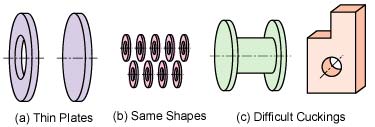
Fig.1, Example Parts using Jigs
|
 Procedure of Making Thin Plates
Procedure of Making Thin Plates
| Now, we would like to make a thin plate, which has 28 mm of outer diameter,
2 mm of thickness and 6 mm of diameter hole at the center. The thin plate
cannot be chucked at a lathe. Therefore we prepare a simple jig as shown
in Figure 2(a). |
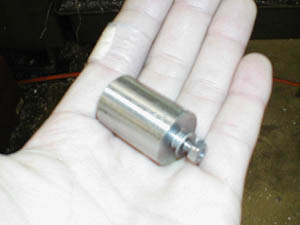
(a) Jig
| The point of this jig has 6 mm of outer diameter, 3.5 mm of length and
a M4 male thread. |
|
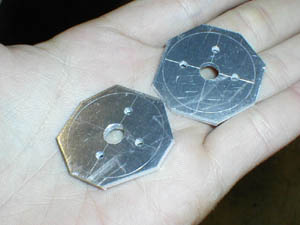
(b) Prepared Materials
| Aluminum plates with 2 mm of thickness are drilled 6 mm of hole. And their
edge is cut off roughly. |
|
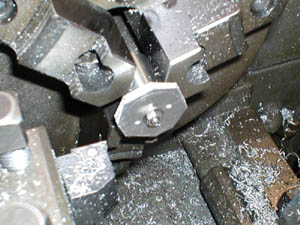
(c) Chucking to a Lathe
| The plates are set to the jig, and chucked a lathe. |
|
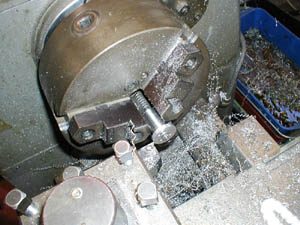
(d) Cutting of Sjapes
| The plates are cut with a side tool little by litte, A big cutting dedpth
bring a slip between the material and the jig. |
|
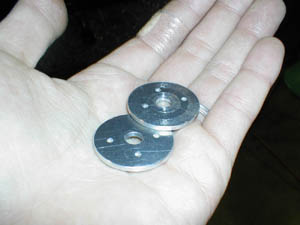
(e) Completed Plates
| The plates are finished. The simple jig is very useful for the processing. |
|
Fig.2, Procedure of Making Thin Plates Using a Jig
 Boring Process of a Board Boring Process of a Board
Now, we would like to make a hole on a board. The hole is used for a bearing,
then it is needed a high acuuracy. In such cases, the board can not be
set to a general three-jaw chuck. A drill may be used for the making of
the hole, but the drilling hole does not have the accuracy. Then we prepere
a simple jig as shown in Figure 3(a). As shown in Figure 3(b), the board
is drilled holesfor the jig, and the board is set to the jig. Next, the
jig is set to the lathe, and the accurate hole for the bearing is made
with a boring bar.
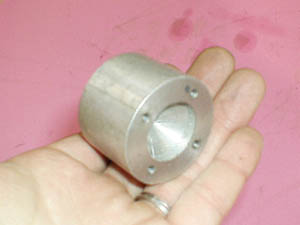
(a) Jig
|
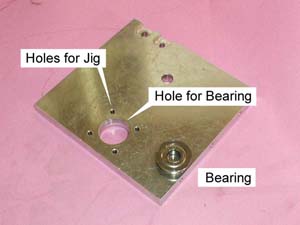
(b) Completed Part
|
Fig.3, Boring Process of a Board
[ Metal Working TOP ]
[ Hirata HOME ]
[ Power and Energy Engineering Division ]
[ NMRI HOME ]
|
 Necessaries of Jig
Necessaries of Jig Procedure of Making Thin Plates
Procedure of Making Thin Plates Boring Process of a Board
Boring Process of a Board






